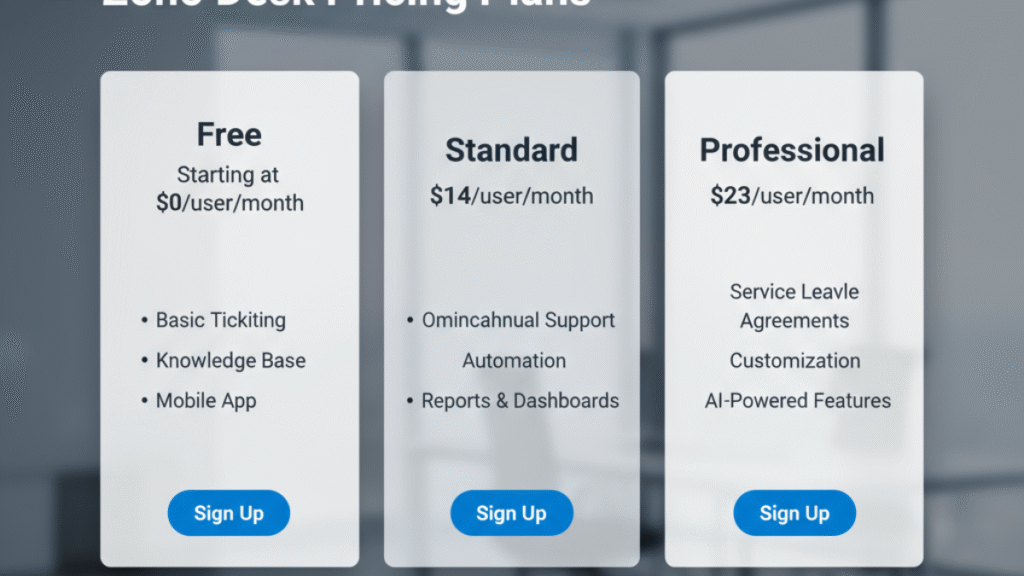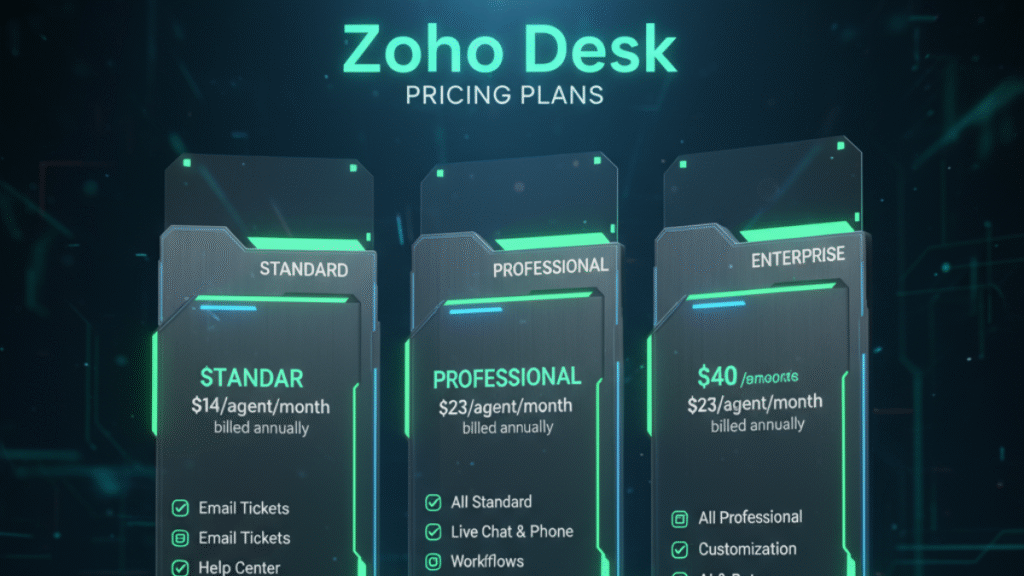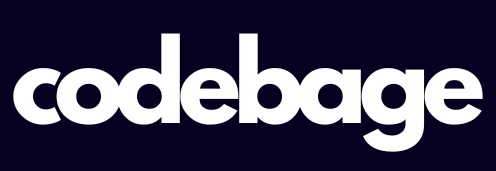Zoho Desk Pricing API Alternative : Delivering a world class customer experience isn’t an option it’s a necessity. In 2025, Zoho Desk continues to establish itself as one of the world’s most powerful, flexible, and affordable helpdesk solutions, trusted by startups, SMBs, and enterprises alike. This detailed, up to date guide covers Zoho Desk’s features, pricing, real world setup, and expert strategies tailored for beginners and pros who want an SEO friendly, original resource optimized for user intent.
What Is Zoho Desk?
Understanding Zoho Desk

Zoho Desk is a cloud based helpdesk software platform developed by Zoho Corporation. Its core promise is to let businesses organize, automate, and improve the support and service they deliver to customers across any channel, at any scale.
Key highlights:
- Converts customer requests into organized tickets
- Enables smart automation and workflow customization
- Unites email, chat, social, phone, and more into one interface
- Offers AI-powered tools to automate repetitive work
- Integrates with over 200 business apps (including Zoho and third-party tools)
- Built for ease of use and low-cost, rapid deployment
What Is Zoho Desk Used For?
Zoho Desk isn’t just for managing support emails. Businesses use it for:
- Multi-channel customer support (email, chat, phone, Facebook, WhatsApp, Twitter, etc.)
- Automating ticket assignment and escalation
- Creating self-service knowledge bases
- Gathering customer feedback and running CSAT/NPS surveys
- Providing IT helpdesk or asset management support
- Bringing visibility and consistency to support operations
What are Zoho Desk Features
Powerful Ticket Management
Tickets are the lifeblood of Zoho Desk you can:
- Turn any email, chat, call, or tweet into a trackable ticket
- Tag, assign, merge, split, and automate tickets
- Filter, search, and bulk edit tickets with ease
Omnichannel Support
- Connect customer touchpoints: be present everywhere your customers are, and manage conversations from a unified dashboard
- WhatsApp, Messenger, live chat widgets, web forms, and voice channels are all supported
Smart Automation
- Use Blueprints for guided processes
- Automate repetitive tasks (assignment, reminders, follow-ups)
- Escalate missed SLAs or overdue tickets
- Zia AI recommends responses, tags, and next actions
Knowledge Base & Self-Service
- Publish a branded, searchable help center so customers can help themselves 24/7
- Embed articles into forms, chatbots, and widgets
- Leverage AI for content suggestions and article analytics
Advanced Reporting
- Pre-built and customizable dashboards
- Drill into ticket, resolution, and agent performance trends
- Export, schedule, and share reports automatically
Agent Productivity Tools
- Views, filters, and macros to speed up workflow
- Internal notes, mentions, and team collaboration on tickets
- Mobile app for full support from anywhere
- Supervisor dashboards for live activity and shift planning
Customization & Integration
- Custom modules, fields, and layouts
- 200+ integrations (CRM, Slack, Jira, SMS, telephony, billing, etc.)
- Open REST API for anything else
Security & Compliance
- Role-based access control
- GDPR tools, audit logs, data retention policy management
- SSO, two-factor authentication, and custom domain support
Zoho Desk Pricing in 2025

Here’s the current Zoho Desk pricing breakdown, accurate as of September 2025:
| Plan Name | Monthly Price (Annual billing) | Key Features | Best For |
|---|---|---|---|
| Free | Free (3 agents) | Email ticketing, knowledge base, mobile apps, basic automation | Startups, testing |
| Express | $7/user | All Free features plus social, SLAs, advanced dashboards | Small teams (up to 5 agents) |
| Standard | $14-15/user | Unlimited agents, multi-channel, reporting, web forms, telephony | Growing teams |
| Professional | $23-25/user | Custom branding, advanced security, API access, automation | Mid-market orgs, tech companies |
| Enterprise | $38-40/user | Workflow automation, sandbox, custom modules, success manager | Enterprise, complex workflows |
- Pay-as-you-go and monthly billing available at higher price points
- Non-profits and education sectors may get additional discounts
- 15-day free trial for any paid plan
How to Use Zoho Desk Step by step guide
Whether you’re a total beginner or migrating from another tool, here’s how to get started:
1. Set Up Your Structure
Departments:
- Go to Settings > Departments and add Customer Support, Billing, etc.
- Assign agents and make each department’s workflows independent
Roles & Profiles:
- Create roles (Agent, Manager, Admin) and assign permissions
- Limit what each user can see (roles) and do (profiles)
- Start restrictive—expand access as needed
2. Route & Manage Communications
Email:
- Connect your main support mailbox (IMAP, POP, or Gmail/Office365 integration)
- All inbound emails create new tickets automatically
Chat, Social, Voice:
Customization:
- Change ticket forms/fields for each channel via setup
3. Notification & Workflow Automation
- Enable/disable default notifications (Settings > Automation)
- Build workflows for auto-assignment, escalations, reminders, and more
4. Ticket Handling Basics
Creating Tickets:
- Manual: Click “Add ticket,” fill details, assign, set SLA/priorities
- Automatic: Via email, self-service portal, widget, API, social DM
Merging Tickets:
Exporting Tickets:
Read-Only Ticket Views:
5. Self-Service & Knowledge Base
- Create help articles for common questions
- Embed in the portal, chat, or widget for smart self-service
- Leverage Zia’s AI suggestions for new article creation
6. Asset Management and IT Helpdesk
- Add “Assets” module for tracking devices, licenses, warranty, etc.
- Link assets directly to relevant tickets for full visibility
7. Integrations & API
- Connect CRM, billing, project management, marketing automation, Slack, Jira, etc.
- Use OAuth-secured API for custom integrations or external reporting
Feature Comparison of Zoho Desk vs Freshdesk vs Zendesk
| Feature | Zoho Desk | Zendesk | Freshdesk |
|---|---|---|---|
| AI & Automation | Zia AI, blueprints, macros | Advanced (GenAI) | Freddy AI |
| Multichannel Support | Email, Chat, Social, Voice | Yes | Yes |
| Custom Modules/Branding | Yes, full | Partial | Limited |
| Asset Management | Yes | With 3rd party | Limited |
| Free Tier | Yes (3 agents) | No | Yes |
| Marketplace Integrations | 200+ | 1,700+ | 1,000+ |
| Mobile App | Yes | Yes | Yes |
| Nonprofit/Edu Discount | Yes | Enterprise only | Limited |
Zoho Desk vs. Zendesk vs Freshdesk
- Zoho Desk edges out on price and flexibility for growing SMBs
- Zendesk best for large enterprise, complex custom AI, huge integration needs
- Freshdesk balances usability and cost for startups, light IT teams
Deciding Factors:
- Need advanced workflow? Go Zoho Desk.
- Need the largest app ecosystem and analytics? Zendesk wins.
- Want quickest live chat setup and e-commerce focus? Try Freshdesk.
Top Use Cases: Zoho Desk in Action
- B2B SaaS teams managing thousands of support tickets monthly
- Retailers automating returns, shipping queries, and pre-sale questions
- IT departments tracking devices, assets, and employee requests
- E-learning support desks handling parent/student issues
- Professional services collecting customer feedback and NPS
Zoho Desk Reviews and User Feedback
- User rating: Consistently 4.3–4.5/5 across G2, Capterra, and SoftwareAdvice in 2025
- Highlights: Smooth onboarding, rapid deployment, flexible customization, excellent value for cost
- Challenges: Some users note mobile UI is basic, automation setup can be complex at first
- AI & Reporting: Zia AI and analytics highly praised for saving time and surfacing insights
How-To Manage Zoho Desk Environment
Change Agent Signatures
- Go to Settings > Agents > Choose Agent > Signature
- Edit and save; use department signatures for system-wide branding
Delete Zoho Desk Account
- Admins: Settings > Subscription > Cancel/Close account
- Export all data first! Account deletion is permanent
Integrate with SAML/Auth & Slack
- Use Admin > Channels > Chat/Social/Telephony for Slack, WhatsApp, SMS
- SAML setup follows identity provider instructions in Admin > Security
Asset Management & IT Workflow
- Add assets using custom modules
- Link assets to tickets to see request histories
Zoho Desk Set up in 7 Easy Steps
- Set Up Departments, Roles, Profiles
- Connect Emails, Chat, Social Channels
- Save SLAs, Notifications, Workflows
- Customize Fields and Ticket Layouts
- Build Help Center, Knowledge Base
- Automate with Zia and Blueprints
- Integrate with CRM, Billing, Slack, Telephony, and more
FAQs
What is Zoho Desk?
Zoho Desk is cloud based helpdesk software to organize, automate, and speed up customer support operations for businesses of any size.
How much does Zoho Desk cost?
Plans start at $7/user/month for Express, $14–$15 for Standard, $23–$25 for Professional, and $38–$40 for Enterprise, plus a free 3-agent plan.
How do I create a ticket in Zoho Desk?
Via email (auto-generated), self-service portal, chat, or add manually from the dashboard.
Is Zoho Desk good for IT helpdesk and asset management?
Yes, Zoho Desk includes asset tracking modules, and can be extended for IT support automation.
How does Zoho Desk compare to Zendesk and Freshdesk?
Zoho Desk is more affordable for SMBs, offers similar core features, and includes AI, workflow automation, and a wide range of integrations.
How do I export tickets or data?
In the tickets view, use Export; in admin settings, use Data Export to download all records (CSV/JSON).
What is Zoho Desk’s AI?
Zia is Zoho’s contextual AI for auto suggestions, smart ticket routing, analytics, and customer sentiment detection.
Can Zoho Desk be customized and integrated?
Yes, with 200+ integrations, custom modules, REST API, and marketplace apps it’s highly extensible.
